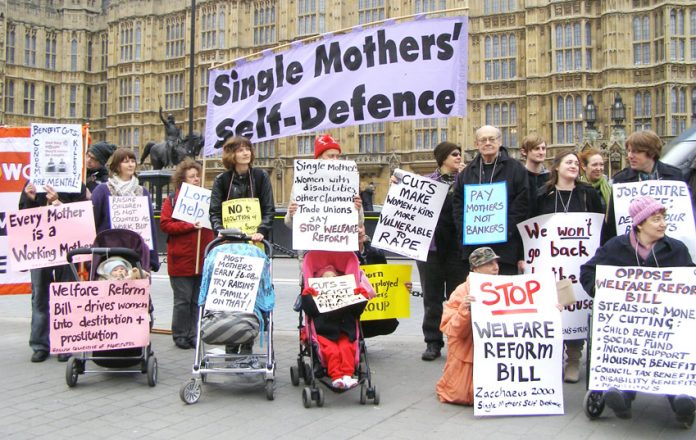FOOD bank donations have soared 1,000% in response to the ‘utterly vile’ Mail on Sunday attack on food banks, a charity revealed yesterday.
The Trussell Trust, a charity which organises the biggest network of food banks in the country said that the Mail on Sunday’s attack had backfired. The Trust received over £53,000 in donations, defying the newspaper’s report which claimed that ‘scroungers’ were ‘abusing the charity’.
The charity revealed that 900,000 people visited one of its food banks during 2013-2014 – an increase of 168%. Under the strapline: ‘No ID, no checks … and vouchers for sob stories: The truth behind those shock food bank claims’, The Mail on Sunday attempted to slander the charity and discredit the work that it does.
The attempt to undermine the charity backfired drastically, as the surge in donations proves, while social media networks slammed the article. One donor said: ‘Keep up the amazing work you do. I find the recent attempts to slander foodbanks utterly vile.’
Reacting to the article, the charity said: ‘The Trussell Trust feels that these undercover methods, used by Daily Mail journalists, to enter the premises of our voluntarily run food banks is an unacceptable attempt to tarnish not only the name of the Trussell Trust, but also the valuable efforts of the 30,000 volunteers who selflessly give up their time to provide a valuable service to people in real need.’
The Trust reports:
• 913,138 people received three days’ emergency food from Trussell Trust foodbanks in 2013-14 compared to 346,992 in 2012-13
• Figures are ‘tip of the iceberg’ of UK food poverty says Trussell Trust Chairman
• 83% of foodbanks report ‘sanctioning’ is causing rising numbers to turn to them
The Trust said: ‘Static incomes, rising living costs, low pay, underemployment and problems with welfare, especially sanctioning, are significant drivers of the increased demand.’
The Trussell Trust’s Chairman, Chris Mould, said: ‘That 900,000 people have received three days’ food from a foodbank, close to triple the numbers helped last year, is shocking in 21st century Britain.
‘But perhaps most worrying of all this figure is just the tip of the iceberg of UK food poverty. It doesn’t include those helped by other emergency food providers, those living in towns where there is no foodbank, people who are too ashamed to seek help or the large number of people who are only just coping by eating less and buying cheap food.
‘In the last year we’ve seen things get worse, rather than better, for many people on low incomes. It’s been extremely tough for a lot of people, with parents not eating properly in order to feed their children and more people than ever experiencing seemingly unfair and harsh benefits sanctions.
‘Unless there is determined policy action to ensure that the benefits of national economic recovery reach people on low-incomes we won’t see life get better for the poorest anytime soon.’
Oxfam’s Head of UK Poverty Programme, Rachael Orr said: ‘The fact that the number of people forced to turn to food banks has doubled in the last year and the situation is worsening for people in poverty is deeply worrying.
‘Foodbanks and the thousands of people who support them are doing an impressive job in helping stop people from going hungry, but the truth is that in a country as rich as the UK there should not be food poverty at all.’
